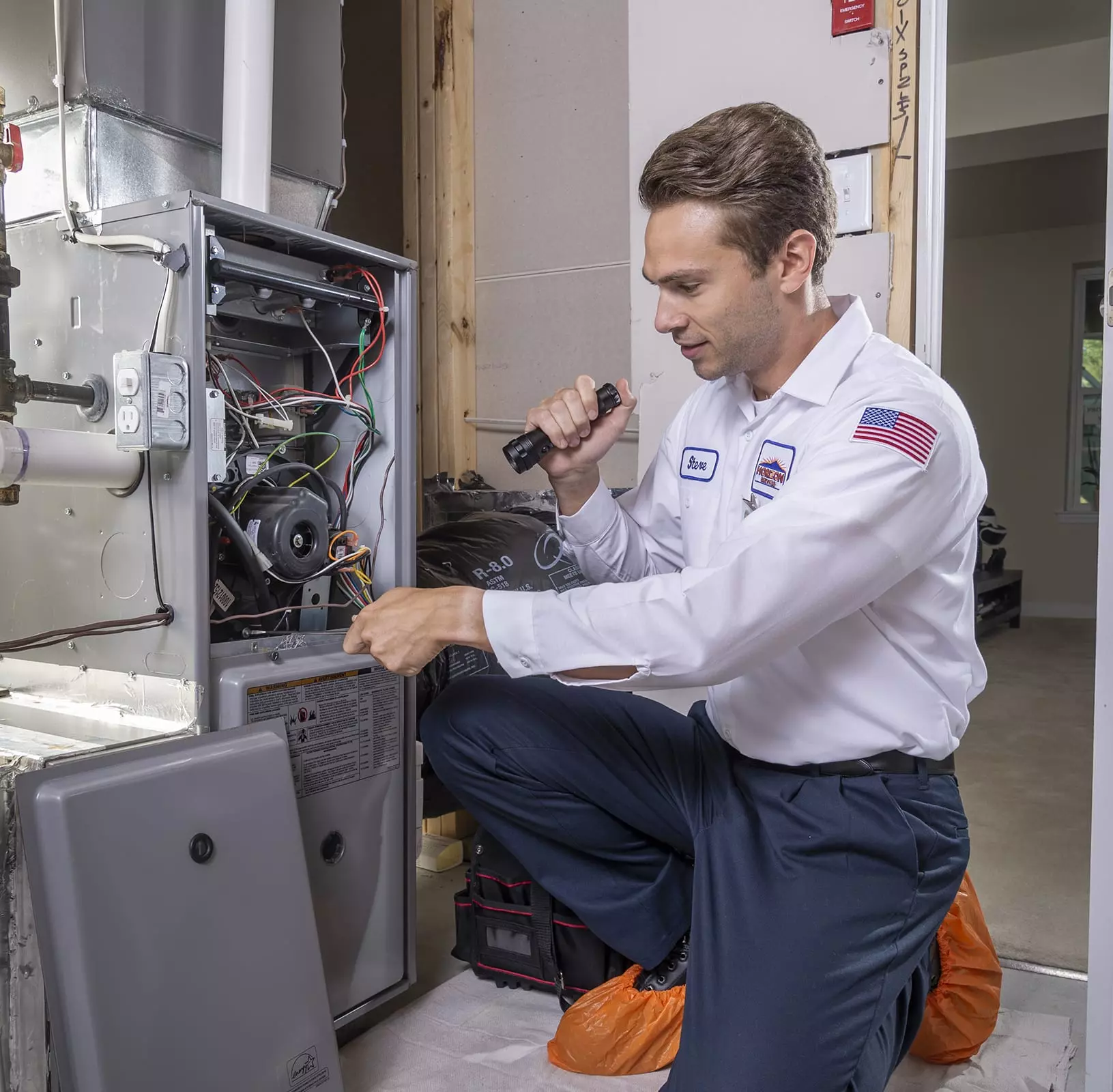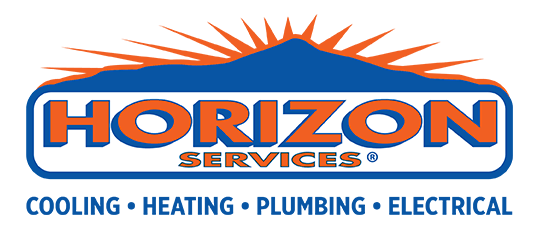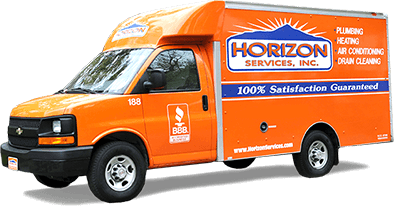
Most of us heat our homes with some type of furnace— oil, gas, electric, propane. While these are great for providing adequate heat in cold months, they can be very noisy.
The most common source of furnace noise is the furnace fan as it circulates heated air throughout the home’s ductwork or out through a vent. The furnace fan usually makes any number of whooshing or whirring sounds, all of which are normal. Your furnace also has other moving parts and components which can emit light clanging or tapping sounds…especially as components and ductwork expand or contract as they heat or cool. These noises are also a normal consequence of operating your furnace.
Of all the kinds of furnaces in use today, a wall furnace is usually the loudest. As the name suggests, a wall furnaces is a heating device that mounts onto a wall. Usually, no ductwork is required with a wall furnace, as the units blow heat directly into the room or transmit it through convection. Exhaust is vented off the top or out the back to the outdoors. Wall furnaces are usually used for small homes or partial areas of a home and utilize gas or electricity to provide heat.
The following are some tips that can help reduce the noise level of your home’s wall furnace (and other furnaces, too).
Have a Dedicated Furnace Room:
It makes perfect common sense: Put your wall furnace in its own room (rather than in close proximity to a common living space), and you can significantly reduce the noise level. If possible, install your wall furnace in a dedicated furnace room to prevent noise from taking over your home. Apply soundproofing foam or insulation to the furnace room ceilings and walls, and use a door with a solid core to keep noise in the room.
Tips & Insights: How to Replace the Thermocouple In Your Furnace
Use Quality Sound Absorbing Materials:
Walls, floors, and ceilings can all be sound proofed by using high quality materials. Soundproofing tiles and carpeting can significantly cut down on noise from the furnace, and can be customized depending on the size and amount of material you need. Avoid installing wood or concrete floors near furnaces, as these conduct noise and make sounds louder.
Check for Duct Leaks:
The same ducts that carry hot air throughout your house also carry the noise from your furnace. Air moving through ducts causes vibration that can actually amplify noise. Any breaks, tears, or leaks in your ductwork allow noise to escape, carrying the sound through the house. Carefully inspect ductwork for leaks, especially at the joints. If you find any tears, use a high quality duct sealing tape to close off the holes. This will dramatically cut down on sound travel and whistling air.
Use Flexible Ducts:
Installing flexible ducts at the point where the duct meets the furnace is an easy way to cut down on noise. This helps reduce vibrations from the furnace blower, which reduces the sound made when the air enters the ducts. A solid duct doesn’t move along with the vibrations; a flexible duct has more give and can move along with the air.
Pad Your Ducts:
When ducts sit too loosely on the straps and clamps that hold them in place, they vibrate and create noise. Insulating or padding ducts at the straps can reduce vibrations and eliminate much of the noise coming from your furnace. This material can be simply wrapped around the outside of the ducts and held in place with a durable duct tape. Most do-it-yourselfers can handle this process without much experience; you’ll just need access to the ducts in your home and a high quality padding material. If you are unsure about the proper insulation, consult the staff at your local hardware or home improvement store.
Tips & Insights: Top Reasons Why Your Furnace Won’t Turn On
When to Call a Heating Professional About Your Furnace Noise…
While today’s furnaces are much quieter than the furnaces of the past, some furnace noise is inevitable with any kind of heating system. However, unusual or excessive furnace noise is usually a sign of a major furnace problem…one that could lead to a furnace breakdown or even a fire. Here are some furnace noise situations that should alert you that something serous may be going on with your furnace:
- Sudden occurrence of furnace noise after a long period of relatively quiet operation
- Noise that sounds like loose parts or fastenters jangling around
- Noise that is accompanied with smoke, ash, sparks, odor or burn marks
- Noise that occurs in a rhythmic pattern
- Any harsh noises (grinding, scraping, slapping)
- A noticeable decrease in furnace performance
- A noticeable increase in the furnace’s surface temperature
If you observe any of these noise problems with your furnace, call the heating specialists at Horizon Services. They will quickly diagnose the source of your furnace noise and provide a reliable, affordable solution.


